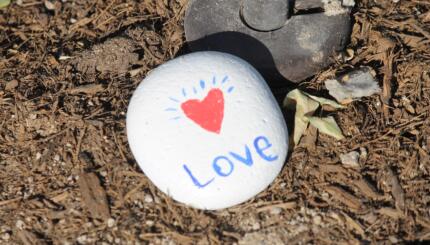Every Thursday, my Facebook feed is filled with old pictures, stories of favorite memories, and statuses that remind people of “where they were X years ago.” Why? Because they all end with the hashtag “#tbt”—a way for people to recall memories on “Throwback Thursday.”
But why do we love “Throwback Thursday?”
Clearly, when we go through our old pictures or think back on events we experienced, we feel a wonderful sense of nostalgia—a warm, fuzzy feeling. But that just pushes the question one level back: why do we feel nostalgia? What value does does nostalgia have?
It’s actually a very nuanced question. The value of simple memory is very easy to explain, especially for evolutionary reasons. If, on the African savanna, you could remember who in your tribe had helped you take down that mastodon, or which berries had made you sick when you ate them, or where that saber-tooth tiger tended to live, you would clearly have an competitive advantage over others.
But it’s harder to understand why we would want to use memories to evoke certain feelings. especially because nostalgia is often very bittersweet. We smile when we remember a poignant memory, and at the same time, there’s some sadness as we realize that that moment from the past can’t ever be replicated.
Yet it turns out that there is some research that suggests that those feelings of nostalgia can make us better people. As John Tierney explains in a piece in the New York Times, “Nostalgia has been shown to counteract loneliness, boredom and anxiety. It makes people more generous to strangers and more tolerant of outsiders. Couples feel closer and look happier when they’re sharing nostalgic memories. On cold days, or in cold rooms, people use nostalgia to literally feel warmer.”
Nostalgia, in other words, helps us connect to ourselves and to others. As Dr. Constantine Sedikides, one of the pioneers in this field, remarked: “Nostalgia made me feel that my life had roots and continuity. It made me feel good about myself and my relationships. It provided a texture to my life and gave me strength to move forward.”
So if that’s what nostalgia truly is about, then Judaism is very much about nostalgia. We see our child become bar or bat mitzvah, and we see the past, present and future mixed together. We smell the brisket our grandmother used to make on Passover, and it brings us back to our childhood seders. We join a synagogue community and build relationships and memories that sustain us.
So “Throwback Thursday” is a perfect avenue for Judaism. It connects us to our friends and our family. It roots us. And it makes us smile.
Because in the end, our memories are what make us who we are. When we recall our fondest memories, we end up strengthening our sense of self.
And that’s why we love “Throwback Thursday”—it not only lets us relive the past, it truly helps us live in the present and get ready for the future.
Like this post? Join the conversation through MyJewishLearning’s weekly blogs newsletter.


